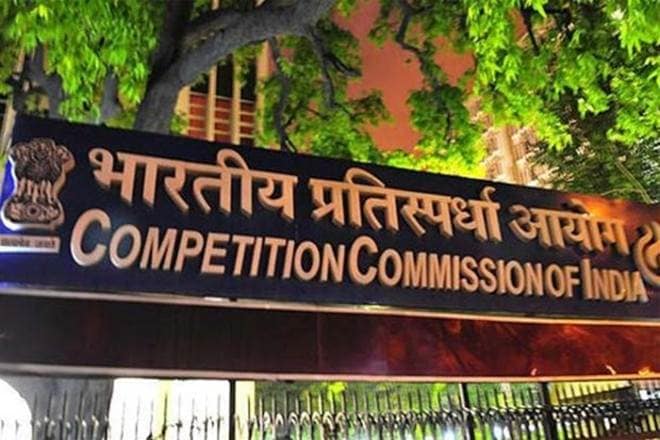Amidst this pandemic, businesses are being forced to either adjust or realign their response. While it is natural for companies to explore innovative means, they must remain cautious of abiding by the competition laws.
Competition law prohibits collaboration between competitors to fix prices, restrict output, allocate markets/customers and rig bids, also called ‘cartel agreements’. These are often ascribed debasing sobriquets such as the ‘ultimate evil of antitrust’. The law prohibits an abuse of position via unfair prices or conditions for sale of goods and services.
Historically, adverse economic or social conditions have not resulted in a suspension of competition rules. COVID-19 is no different. Competition authorities have explicitly stated that they will continue to monitor business behaviour. However, there is also a realisation that businesses, especially competitors, amidst lockdown, may come together, communicate, and collaborate for production, distribution, transportation, and supply of essential commodities, FMCGs, and healthcare products.
Pharmacies, for instance, may wish to pool their stock. Supermarkets may wish to cooperate on home delivery of groceries, logistics companies may wish to ensure continuity of supplies and airlines may wish to allocate geographies. Recently, Pfizer and BioNTech entered an unprecedented collaboration to co-develop and distribute a coronavirus vaccine. Such collaborations, otherwise, may have been subject to antitrust scrutiny.
But authorities on both sides of Atlantic have decided to grant exemptions. For example, the EU and the US have issued expedited antitrust review procedures and decided not to interfere with necessary and temporary measures taken to avoid address supply shortages. These include collaboration and data sharing between competitors on projects related to health and safety. On April 8, the European Commission published a temporary framework communication to provide antitrust guidance to companies in the critical medical goods space. It also issued a so-called comfort letter to assure ‘Medicines for Europe’ against levy of heavy cartel fines. In the UK, competition law to allow competing supermarkets to cooperate and share data on stock levels, cooperate to keep shops open and share distribution depots and delivery vans has been waived off. The waiver allows retailers to pool staff. A COVID-19 taskforce has been set up to deal with the cartels and prevent price gouging of PPEs. The Norwegian government has exempted competing airlines SAS and Norwegian from the cartel prohibition for three months and asked them to cooperate. The Australian competition authority has allowed medtech companies to coordinate the supply and potential manufacture of PPEs.
Competition authorities have also made it clear that the crisis should not become a “cover” for non-essential collaborations to obtain economic benefits by restricting or increasing the cost of essential supplies. In a free market, when demand outstrips supply, prices go up, and companies tend to resort to various forms of anti-competitive practices. Many competition authorities across the globe were quick to investigate such practices. For example, the Japanese competition authority is investigating Osaka-based pharmacy operator Kokumin for illegal product tying, namely, face masks with other PPEs. The Polish competition authority is investigating the unfair conduct of wholesalers supplying PPEs to hospitals as they terminated their supply contracts with hospitals to obtain higher prices. In China, more than 4,500 companies have been investigated and fined for price gouging of PPEs and food. The Italian competition authority is investigating Amazon and eBay for unjustified price increases of PPEs. In South Korea, pharmaceutical, FMCGs, and e-commerce companies faced raids on suspicion of illegal product bundling of face masks. Companies active in the travel and hospitality sector are also advised to be flexible in their cancellation/refund policies.
India is grappling with a massive shortage of foodstuff, FMCG products, and PPEs, coupled with widespread disruption in online and offline retail supply chains. India’s retail trade has incurred an estimated $30 billion in losses, and approximately 13.6 crore jobs may be affected. The government has rolled out various interim relaxations of statutory and regulatory compliance for individuals and companies under the Companies Act, IBC, Tax, Electricity Act, SEBI, and others. No exemption to any sector/class/company has yet been announced under the (Indian) Competition Act, 2002. Hence, companies and their officers continue to be subject to existing competition rules, which prohibit cartelisation and abuse of their dominant bargaining/competitive position. Further, M&As cannot be closed/consummated without obtaining relevant approval from CCI.
India companies must not neglect compliance, especially those active in the FMCG, healthcare, pharmaceutical, and PPE sectors. Legal advice must be sought before making a deviation from existing practices. Another aspect, calls for companies to specifically consider competition law when asked by the government to collaborate with competitors or when approached by competitors, even if the objective is to meet public health or provide essential services. Companies considering M&A deals should not be tempted to circumvent merger filings during the crisis. Commendably, the CCI has partially resumed its operations by permitting M&A filings electronically. However, deal approvals may be delayed as the CCI officers are working remotely till May 3 (which may be extended). Hence, companies should strategise how to deal with timing risk: ensure that long-stop dates are sufficient and factor in that merger control approvals may take longer than expected.
It remains to be seen if CCI takes a cue from other jurisdictions and waives certain collaborations/compliances from the purview of the Competition Act, while ensuring, at the same time that any such regulatory relaxation is not misused. The companies and related industry associations may approach the government where they feel that collaborations in their sector warrant exemption. The government will likely consult the CCI for any temporary suspension since it is already under pressure to minimise the resulting damage to health and economy.
The author is Partner with competition law practice of J Sagar Associates. Views are personal

